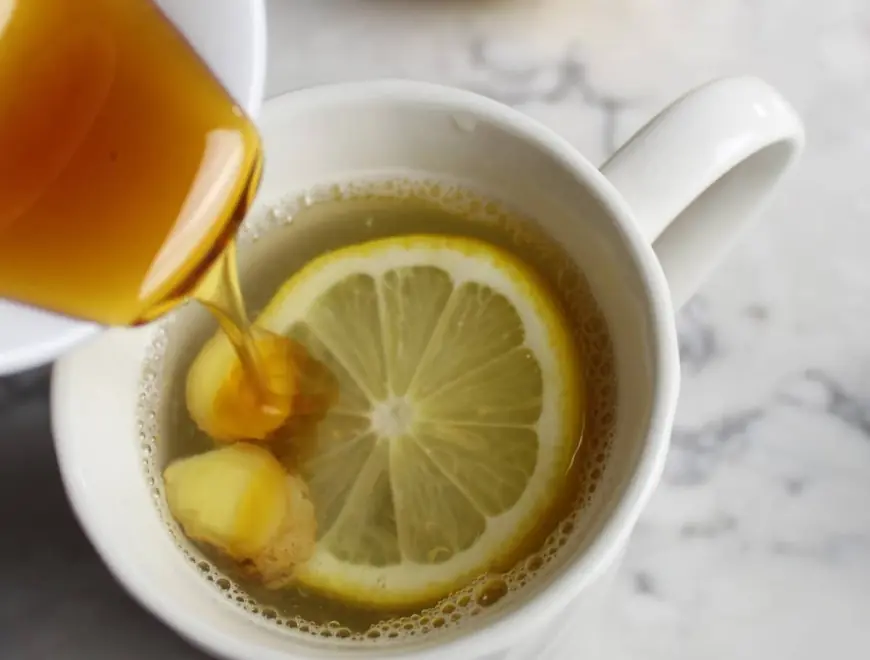Digestive Tea vs. Regular Herbal Teas: What’s the Difference?
If your primary concern is bloating, discomfort, or gas, a digestive tea—often doubling as a gas relief tea—can offer targeted relief.

Tea has long been cherished for its comforting warmth and healing properties. From soothing an upset stomach to calming nerves before bedtime, herbal teas offer a wide range of benefits. But not all teas are created equal. In recent years, digestive tea has gained popularity for its targeted effects on the digestive system, particularly in relieving bloating, indigestion, and gas. So, how does digestive tea differ from regular herbal teas? Let’s explore the key distinctions and why it might be worth adding a digestive tea to your wellness routine.
What Is Digestive Tea?
Digestive tea is a type of herbal tea specifically formulated to support digestion. It typically includes a blend of herbs known for their carminative, antispasmodic, and anti-inflammatory properties. These herbs work together to relax the gastrointestinal tract, reduce bloating, and promote smoother digestion.
Common ingredients in digestive teas include:
-
Peppermint – Helps relax the muscles in the digestive tract and reduce gas.
-
Ginger – Stimulates saliva and bile production, aiding in digestion.
-
Fennel – A natural carminative that helps relieve bloating and abdominal discomfort.
-
Chamomile – Reduces inflammation and relaxes the gut lining.
-
Licorice root – Soothes the stomach and supports mucus production for gut protection.
Unlike general herbal teas, digestive teas are crafted with intention—to relieve specific gastrointestinal issues like indigestion, cramping, and bloating. Many blends also double as gas relief teas, addressing discomfort from trapped air in the digestive tract.
What Are Regular Herbal Teas?
Regular herbal teas are infusions made from various parts of plants—leaves, flowers, roots, or seeds—that aren’t necessarily chosen for their digestive benefits. While they can still offer health perks, such as calming nerves, improving sleep, or providing antioxidants, they are usually more generalized in purpose.
Examples of regular herbal teas include:
-
Hibiscus Tea – Rich in antioxidants and good for heart health.
-
Lavender Tea – Known for its calming effects and stress relief.
-
Rooibos Tea – High in antioxidants and naturally caffeine-free.
-
Lemon Balm Tea – Used to support relaxation and cognitive function.
These teas may aid digestion indirectly due to their calming properties, but they don’t contain the concentrated blend of herbs specifically formulated to address digestive issues or provide gas relief tea.
Key Differences Between Digestive Tea and Regular Herbal Teas
Let’s break down the primary differences between digestive teas and standard herbal blends:
1. Purpose and Formulation
-
Digestive Tea: Specifically created to aid digestion, ease bloating, and reduce gas. Formulated with proven digestive-supporting herbs.
-
Regular Herbal Tea: Often crafted for general wellness, stress relief, flavor, or energy. Digestive benefits may be secondary or incidental.
2. Ingredients
-
Digestive Tea: Includes ingredients like peppermint, ginger, fennel, chamomile, and licorice root—herbs known to relax the gut and relieve gas.
-
Regular Herbal Tea: Ingredients vary widely based on intended benefit (e.g., rose petals for flavor, rooibos for antioxidants, or lavender for relaxation).
3. Effects on Digestion
-
Digestive Tea: Directly impacts digestion by relaxing intestinal muscles, increasing bile flow, and reducing fermentation in the gut—common causes of gas and bloating.
-
Regular Herbal Tea: May help with digestion indirectly (e.g., through relaxation), but not as effectively or intentionally.
4. Use Cases
-
Digestive Tea: Used after meals to ease bloating, during IBS flare-ups, or as part of a daily gut health routine.
-
Regular Herbal Tea: Consumed for general enjoyment, hydration, or specific non-digestive benefits like stress or skin health.
Can Digestive Teas Be Used as Gas Relief Teas?
Absolutely. In fact, many digestive teas are marketed or labeled as gas relief teas because they contain herbs like fennel and peppermint that help break down gas bubbles in the digestive tract. These ingredients work by reducing inflammation and relaxing the muscles that contract during digestion, which can trap air and lead to bloating or discomfort.
So, if you’re looking for a natural solution to gas or indigestion after a heavy meal, a warm cup of digestive tea can be a gentle yet effective option.
Why Choose Digestive Tea Over Regular Herbal Tea?
While regular herbal teas can be delicious and calming, digestive tea is your best bet when you're dealing with bloating, sluggish digestion, or gas. Its carefully selected herbs are supported by centuries of use in traditional medicine and increasingly by scientific studies confirming their effectiveness.
Here’s why you might reach for a digestive tea instead of a general herbal blend:
-
You feel bloated after eating
-
You experience frequent gas or indigestion
-
You have mild symptoms of IBS
-
You want to support gut health naturally
-
You’re looking for a caffeine-free, soothing beverage with functional benefits
Tips for Getting the Most Out of Digestive Tea
To maximize the benefits of your digestive tea:
-
Drink it warm, especially after meals.
-
Steep it for 5–10 minutes to extract the full power of the herbs.
-
Choose organic blends when possible to avoid chemical residues.
-
Combine it with mindful eating and a gut-friendly diet for best results.
Conclusion
While both digestive teas and regular herbal teas have a place in a healthy lifestyle, they serve different purposes. If your primary concern is bloating, discomfort, or gas, a digestive tea—often doubling as a gas relief tea—can offer targeted relief. With time-tested ingredients and focused benefits, digestive teas are more than just a pleasant drink—they’re a natural remedy for common digestive woes.
So the next time your stomach feels unsettled, skip the generic tea and brew a cup of digestive tea. Your gut will thank you.
What's Your Reaction?
 Like
0
Like
0
 Dislike
0
Dislike
0
 Love
0
Love
0
 Funny
0
Funny
0
 Angry
0
Angry
0
 Sad
0
Sad
0
 Wow
0
Wow
0
















































